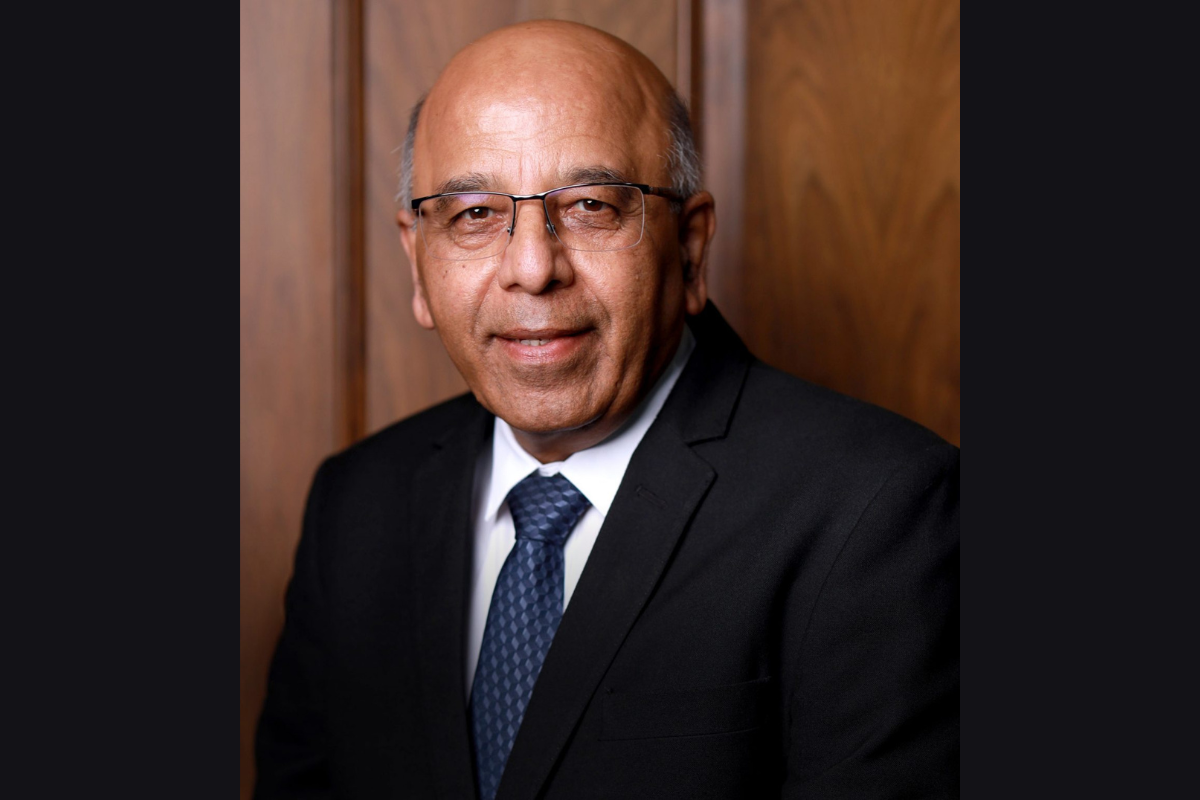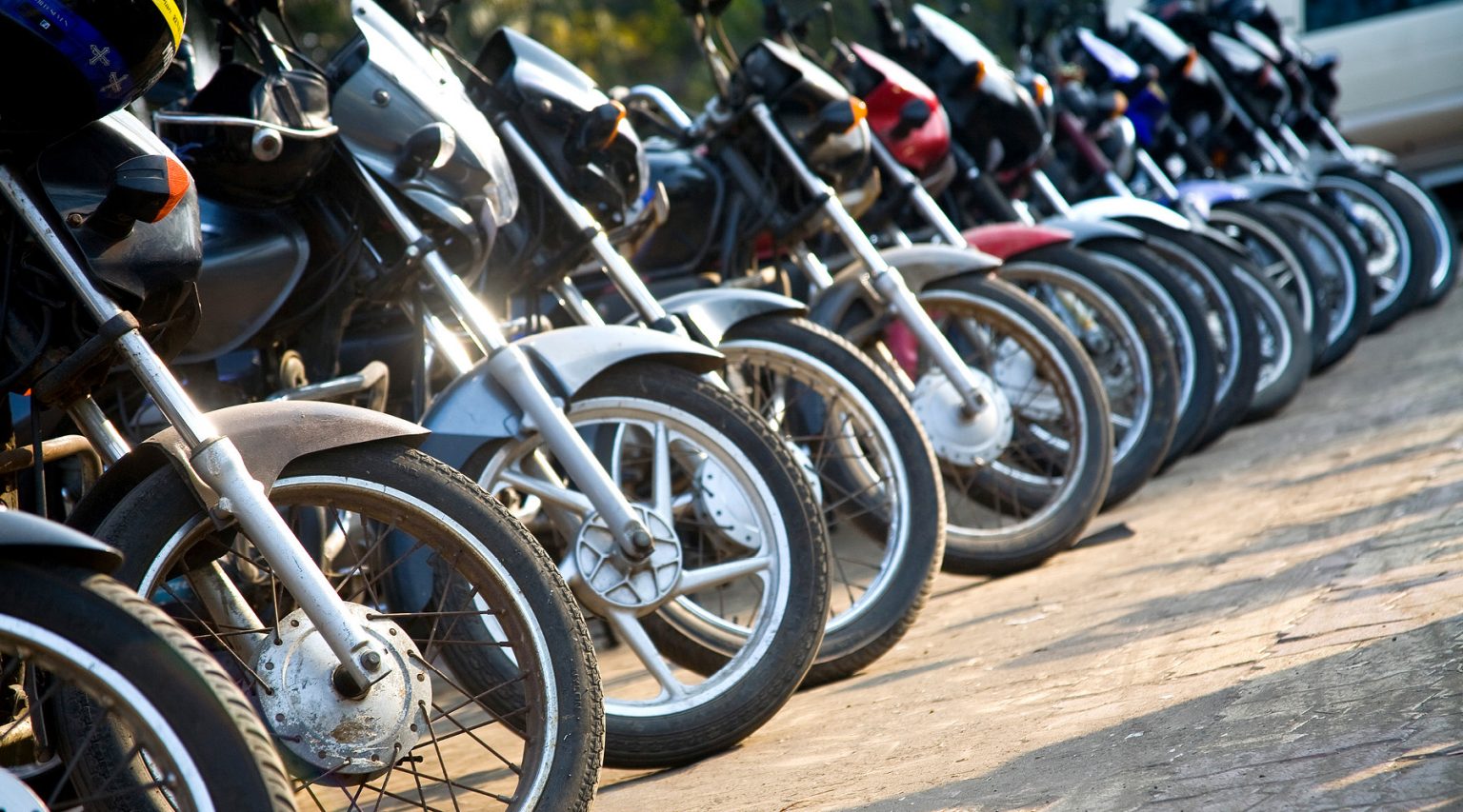Outcompeting the Best: Ramesh Gehaney
Motorbike parts maker Endurance Technologies was once thought to be dependent on a single large client. But Executive Director and COO Ramesh Gehaney helped the company rise to the top of its game.
Back in 2004, the Indian motorcycle components manufacturer Endurance Technologies was seen in the industry as being dependent on its largest customer, Bajaj Auto. It was, to be sure, a decades-long partnership that generated a large amount of business, but the perception that Endurance was focused on serving just one company was holding it back.

"We realized that people considered Endurance to be a more Bajaj-oriented company," says Ramesh Gehaney, Endurance’s Executive Director and COO.
"Our service level with Bajaj Auto was quite intense and it had been developed and matured over 37 years, but actually we were not a Bajaj-oriented company. Endurance is a customer-oriented company and Bajaj Auto is our single largest customer."

We had to win through ruling over technology, and that’s why technology was our key differentiator.
While Endurance’s team felt this image was misguided, they also saw it as a sign that it was time to change. They decided to introduce a company-wide transformation policy to diversify into other sources of business.
"To break this perception in the market, we had an intensification strategy," Gehaney says. "We went to Japan, to Japanese customers, we went to Indian customers, and we had to actually showcase our strength through technology."
To develop its technological strength, Endurance invited its customers to collaborate, forging win–win partnerships that enabled customers to benefit from parts with better specifications while sharpening Endurance’s own expertise.
"We had to win through ruling over technology, and that’s why technology was our key differentiator," he says.
Rigorous testing
One way that Endurance sets itself apart technologically is by offering a more rigorous testing process.
"At any Tier-1 company, what you do for the customer is develop products and test them and then give them to the customer," Gehaney explains. "We take a different route. I’m proud to say that we are the only Tier-1 company that owns a test track ground of our own."
The proving ground is spread over 11 hectares of land and has eight test tracks with various surfaces and five different gradients.
"It is not only for our vehicles; we allow the customers to use the test track for their vehicle testing requirements, with total confidentiality," he says.
"Early on, we only did lab testing. But then we realized that lab testing is not enough, because after that, the customer also had to do further tests, and that was very time-consuming for them. So we decided that whatever the customer is doing we would take that on within our range of work. That’s how we started winning the confidence of the customers."
Endurance also tests its components on real roads, by putting them in bikes hooked up to instruments and gauges and then sending drivers out into the field to ride them. This process, known as Road Load Data Acquisition, allows Endurance to fine-tune its parts to better deal with potholes, bumps, high-speed riding and other conditions that are more difficult to accurately simulate in a test.
"All those real-life events are captured and simulated into our testing machines," Gehaney explains. "So we go from design to the field and then the field back to testing. When we say we offer complete solutions, this is what we mean.
Anything that is given to us as feedback, we take back to the drawing board to figure out how to solve the issue.
"This is how technology-oriented we are. It is a full sequence of steps we adopt: we design, develop, test, supply and service."
Endurance’s work doesn’t end once a part is sold to a vendor, or even when the finished vehicle is sold to the end consumer. Endurance continues to monitor the performance of its parts while they are in use, gathering information that it then used to further perfect its technology.
"When I say after sales, I do not just mean supplying extra materials to customers that they can sell on for extra business," he says.
"We actually go out into the field also to collect information from the mechanics, the dealers, the workshops, to understand how they feel about our products. Anything that is given to us as feedback, we take back to the drawing board to figure out how to solve the issue."
Flawless performance
Ensuring that Endurance’s products perform flawlessly for end users is not just a way to build a reputation for excellence and reliability in the market. It also helps the company reduce costs from warranty claims.
"We increased our knowledge and intensification of R&D so that we could reduce the need for customers to return items," Gehaney points out. "Helping the customers bring down warranty claims was a big accomplishment for us."
Back when Endurance began its transformation journey in 2004, the company decided to pursue Total Productive Maintenance (TPM) – a philosophy of operational excellence that aims to reduce losses and bring customer complaints to zero.
"Earlier in our journey, we never used to believe that customer complaints could reach zero," he concedes. "We always used to anticipate some percentage of customer complaints.
"But our TPM guru, who is a complete expert on such matters, took us through the journey. Of course, he was very, very tough in his approach, and he made us believe that if you attack the phenomenon of the defect and try to put in some corrective actions, the objective to bring every defect phenomenon to zero is achievable."
To achieve such ambitious goals, the team had to be hyper-focused, dividing its goals into smaller, more achievable actions that could be dealt with one after the other.
"The actions have got to be oriented toward only one objective, such as zero in-house rejections, or zero breakdowns, zero losses and so on," Gehaney says. "I think we did that fairly well."
The company also undertook consolidations in response to challenging business dynamics. Merging its plants enabled the company to improve operational efficiencies while also getting closer to the customer and reducing fixed costs.
The disruption of the COVID-19 pandemic was another opportunity to improve efficiency.
"This is one of those black swans that you don’t anticipate, and that surprise you with many challenges," he confirms. "The lockdowns gave us new direction on how to improve operational efficiencies."
The lockdowns gave us new direction on how to improve operational efficiencies.
One key goal was to reorient the business model in a way that allowed the company to save on transportation and other variable costs.
"We started working on reducing variable costs, and then we went extensively beyond that," Gehaney says. "Reducing variable costs was a big lesson for us, that wherever we were on variable cost, we were able to drop it more by focusing attention on every single item of expense."
This exercise played a key role in ensuring that Endurance remained in a good position throughout the crisis. "I think we came out very well," he adds.
The company also maintained its strong relationships with its customers during the pandemic.
"The support we gave them was very different in nature to what others were doing," he reveals. "We housed people over there in their factories and supported them on how to produce things, and even sent vehicles to get the material from them and ensured that the customer lines did not stop. So it was a complete demonstration of teamwork across industries and within the organization."
Win–win
That teamwork helped Endurance emerge from the worst of the COVID-19 crisis in an extremely strong position.
"I think we have set a benchmark for many industries as far as our operational growth and profitability is concerned, and I can say without doubt that we are either number one or number two for all our product verticals as far as customer acceptance is concerned."
Becoming so well liked by customers is a huge achievement for a company that was once considered to be merely orientated toward serving one major client. In each product category where Endurance operates, it has had to compete with globally recognized brand names with decades-long reputations for excellence and reliability.
"For all these years, we have been competing with the best in the world," Gehaney agrees. "So our journey was very tough, but we did not lose our focus or concentration in our efforts to achieve that result."
In order to pry loyal customers away from competitors, Endurance sought to differentiate itself in three ways: with technology, customer service and cost.
"The most important point was cost, because India is a market with large volumes and it’s cost competitive," he says. "So while we were challenging the world, we got the opportunity to not only reduce the cost because our overheads were lower than theirs, but also to offer better solutions to our customers in terms of quality and cost. Our efficiencies were better."
Endurance also directly engaged its customers while determining its production costs and prices. "We have always participated with the customer to share ideas to improve on the costs that we offer to them. The pricing that we got from them was reasonably good for us and reasonably good for them. So it was a win–win situation for both."
I think we have set a benchmark for many industries as far as our operational growth and profitability is concerned.
Another strategy that Endurance employed to gain an edge was to open new plants in close proximity to its customers, such as in Gujarat, where Honda has a base.
"When we acquired more business, we opened more plants for them," Gehaney says.
In the field of technology, the secret to getting ahead was once again close engagement with its customers to determine their needs and priorities.
"Our work with them in terms of technology gave us an edge, allowing us to be ahead of the customer’s expectations," he says.
In doing so, Endurance has followed a value system it calls CITTI: customer centricity, integrity, transparency, teamwork and innovation.
"We sat down and decided that this value system would be the driver of our business model, and today, I must tell you: customers trust us, whatever information we are giving them, whatever way we engage with them, because they find no shortcomings in our customer centricity. We are totally transparent with them, and we have already won their confidence," he says proudly.
"I have always strongly believed that you can’t win a customer if you’re not transparent with them.
"You can’t win a customer if you’re not innovative in your approach. You can’t win a customer if you compromise on integrity. These are the differentiators that helped us in reaching where we are today."